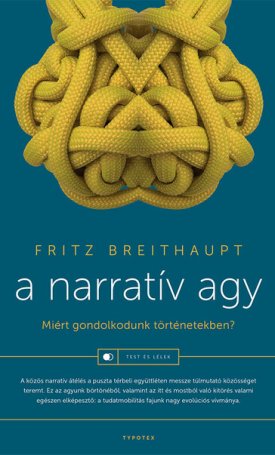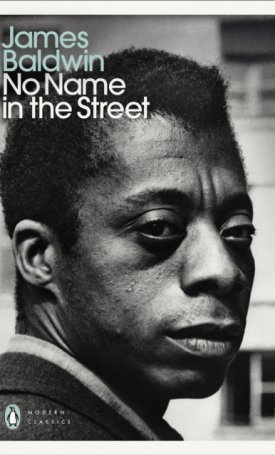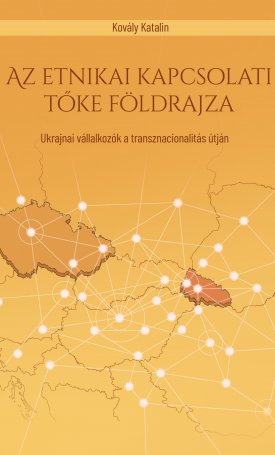Water, Peace, and War - Confronting the Global Water Crisis
-10%
9 800 Ft
8 820 Ft
Előrendelés(Bejelentkezés szükséges)
A kedvezményes árak kizárólag a webshopunkon keresztül leadott megrendelésekre érvényesek!
Water, Peace, and War - Confronting the Global Water Crisis
Water war as a concept may not mesh with the conventional construct of warfare, especially for those who plan with tanks, combat planes, and attack submarines as weapons. Yet armies don’t necessarily have to march to battle to seize or defend water resources. Water wars—in a political, diplomatic, or economic sense—are already being waged between riparian neighbors in many parts of the world, fueling cycles of bitter recrimination, exacerbating water challenges, and fostering mistrust that impedes broader regional cooperation and integration. The danger is that these water wars could escalate to armed conflict or further limit already stretched food and energy production.
Writing in a direct, nontechnical, and engaging style, Brahma Chellaney draws on a wide range of research from scientific and policy fields to examine the different global linkages between water and peace. Offering a holistic picture and integrated solutions, his book promises to become the recognized authority on the most precious natural resource of this century and how we can secure humankind’s water future.
Contents:
Introduction: Our Most Precious Resource under Threat
Chapter 1: The Specter of Water Wars
Chapter 2: The Power of Water
Chapter 3: The Future of Water
Chapter 4: Changing Water Cooperation, Competition, and Conflict
Chapter 5: Shaping Water for Peace and Profit
Appendix A: Web Links to International Water Norms
Appendix B: Genuine Intercountry Water-Sharing Treaties Currently in Effect
Glossary
Author:
Brahma Chellaney is a geostrategist focusing on large-scale international trends. He is a professor of strategic studies at the Center for Policy Research in New Delhi, a fellow of the Nobel Institute in Oslo, a trustee of the National Book Trust, and an affiliate with the International Centre for the Study of Radicalization at King’s College London. He has served as a member of the Policy Advisory Group headed by the foreign minister of India and an advisor to India’s National Security Council.
As a specialist on international strategic issues, he has held appointments at Harvard University, the Brookings Institution, the Paul H. Nitze School of Advanced International Studies at Johns Hopkins University, and the Australian National University. He has also been a Bosch Public Policy Fellow at
the Transatlantic Academy in Washington, D.C.
Chellaney is the author of six books, including Asian Juggernaut: The Rise of China, India, and Japan and Water: Asia’s New Battleground, winner of the 2012 Asia Society Bernard Schwartz Book Award.
Reviews:
This book argues that even though water is of fundamental importance to humans, we have undervalued it and have therefore failed to create institutional mechanisms at the international level to ensure its prudent use. This argument is developed in detail in five chapters, considering both the scientific and political implications of water use. Chellaney (Center for Policy Research, New Delhi) notes the geopolitical impacts of water shortages on the frequently bellicose behavior of Israel and its neighbors. The author then provides a credible account of the ways in which China has become an unprecedented water hegemon. The reader learns that China`s unabated dam building has allowed it to control the headwaters of several international rivers and manipulate their cross-border flows. Therefore, concerted external pressure is needed to get Beijing to accept some form of institutionalized cooperation. The author concludes that in order to prevent water-based conflicts, a set of international rules, cooperative institutional mechanisms, and environmentally sustainable water management solutions will be needed. Chellaney`s attempts to draw causal connections between water and actual problems can sometimes be questioned, but his book, while occasionally repetitive, provides a lucid account of the nexuses between water security and world peace. Summing Up: Highly recommended. All readership levels.
— CHOICE
When the word war is mentioned, most people conjure images of blood, bullets, and violent clashes over land and oil. Hence, fighting a war over something as apparently abundant as water sounds almost surreal, and yet there are places in the world right now where nonshooting battles are already being waged over this precious resource. According to international-affairs authority Chellaney, it’s only a matter of time before tanks roll and lives are lost in countries struggling to secure enough water for their citizens. Unless, of course, the world community finds a way to ensure this universal need is met for everyone. Beginning with the sobering fact that almost a billion people don’t have access to clean water, Chellaney gives the reader multiple snapshots of existing water-related tensions around the world, then offers several risky but necessary solutions based on current UN-based international rules. A clearly written and thorough guide to a complex problem that, along with global warming, is rapidly becoming one of the world’s most serious humanitarian crises.
— Booklist
Chellaney sketches a bleak picture of water scarcity in Africa, Asia, and the Middle East, regions also struggling with unstable governments and rapidly growing populations. What Chellaney calls "water stressed conditions" are also appearing in developed countries, such as Australia, Spain, and South Korea. Even the deep-water aquifers that support modern agriculture in North America are dwindling. But will the social and environmental stresses of water shortage lead to conflict and armed violence? On that question, Chellaney`s book is more speculative. Conflicts over water have already embroiled states along the Nile basin, in Africa, and along the Tigris-Euphrates basin, in the Middle East, and the war in Darfur has at least partly been driven by clashes over access to water in Sudan`s far west. Chellaney makes it clear that such conflicts will become more common as water begins to be "used as a weapon," as a recent U.S. intelligence assessment predicted, at least in a metaphoric sense, as upstream countries deny water to downstream ones.
— Foreign Affairs
There’s nothing quite like water. There’s no life without it and there’s no substitute for it. But as Brahma Chellaney reports in his new book, Water, Peace, and War: Confronting the Global Water Crisis, by the 2020s some two thirds of the world’s population will face problems getting enough of the stuff. In the United States and other highly developed countries, the battles over water pit those who want rapid economic development against those who insist on conservation. (See the long history of California, or just see Roman Polanski’s Chinatown.) But in many developing countries, there’s nothing about water wars that’s figurative; they are ferocious fights for survival. One example: Darfur. And let’s not even start talking about the Holy Land, where the River Jordan is neither deep nor wide. Throughout the Middle East and large swathes of Africa, dams and diversions upstream can be acts of virtual—and sometimes literal—war against those farther downstream. Chellaney calls for transparency, collaboration, and sharing across borders. But given the record of so many international initiatives in recent years, it’s hard to imagine much action will be taken until the rich and powerful see their wells running dry.
— Newsweek
Chellaney’s fine work describes itself as ‘a study of the global linkages between water and peace,’ but most of the book is an examination of the connection between water and conflict. ‘Hydropolitics’ promises to become increasingly contentious and nasty. . . . While Chellaney. . . sees water-related conflict as a growing international threat, he does not believe that armed conflict over this one truly indispensable resource is inevitable. But preventing water wars, as he sees it, will require ‘rules-based cooperation, water sharing, uninterrupted data flow, and dispute-settlement mechanisms.’. . . Yes, the world has a water problem. But it has a bigger problem with authoritarianism. Despots and dictators will use this liquid gold to disrupt peace, accumulate power, and force neighbors to submit.
— World Affairs
This book is essential reading for specialists and for those wishing to familiarize themselves with the politics of water resources. Looking at the world from this perspective will help readers to gain a new insight into many troubling issues now and in the future.
— Global Policy
Chellaney synthesizes several decades of research and analysis across a range of technical and policy fields into a clear, yet detailed, summary of the emerging crisis around this most basic and vital of resources, and the potential consequences for human security and international stability. . . . The strength of Chellaney’s synthesis lies in the way he combines these well-known trends with geostrategic analysis. . . . Water, peace and war are each hugely complex issues in their own right, and the nexus between them is even more difficult to grasp, let alone untangle. In Water, Peace, and War, for once we have an analysis that lives up to its own publicity.
— Survival
The risk of conflict over water is growing ever more severe, and here, at last, is a book that analyzes water through the lens of international peace and security. Brahma Chellaney performs an invaluable service by identifying the multiple causes of global water stress and showing what must be done if conflict over scarce and contested supplies is to be averted.
— Michael Klare, Hampshire College
Brahma Chellaney’s Water, Peace, and War is the first work to make water the center of its concern and to argue that water is emerging as a more important issue for the fate of mankind than population growth, food supply, pollution, peak oil, other ‘peak’ commodities, and climate change. The author’s writing is fluid, and complex materials are handled with clarity. This is an excellent contribution to a tradition of important works that have argued in one way or another that the world faces some kind of ecological crisis.
— Andrew Nathan, Columbia University
Frightened about terrorism? Proliferation? Big power rivalries? You had better start worrying about water. Brahma Chellaney tells you why, in a tour de force sweeping in its breadth, staggering in its detail, and sobering in its analysis.
— Robert M. Hathaway, Woodrow Wilson International Center for Scholars















